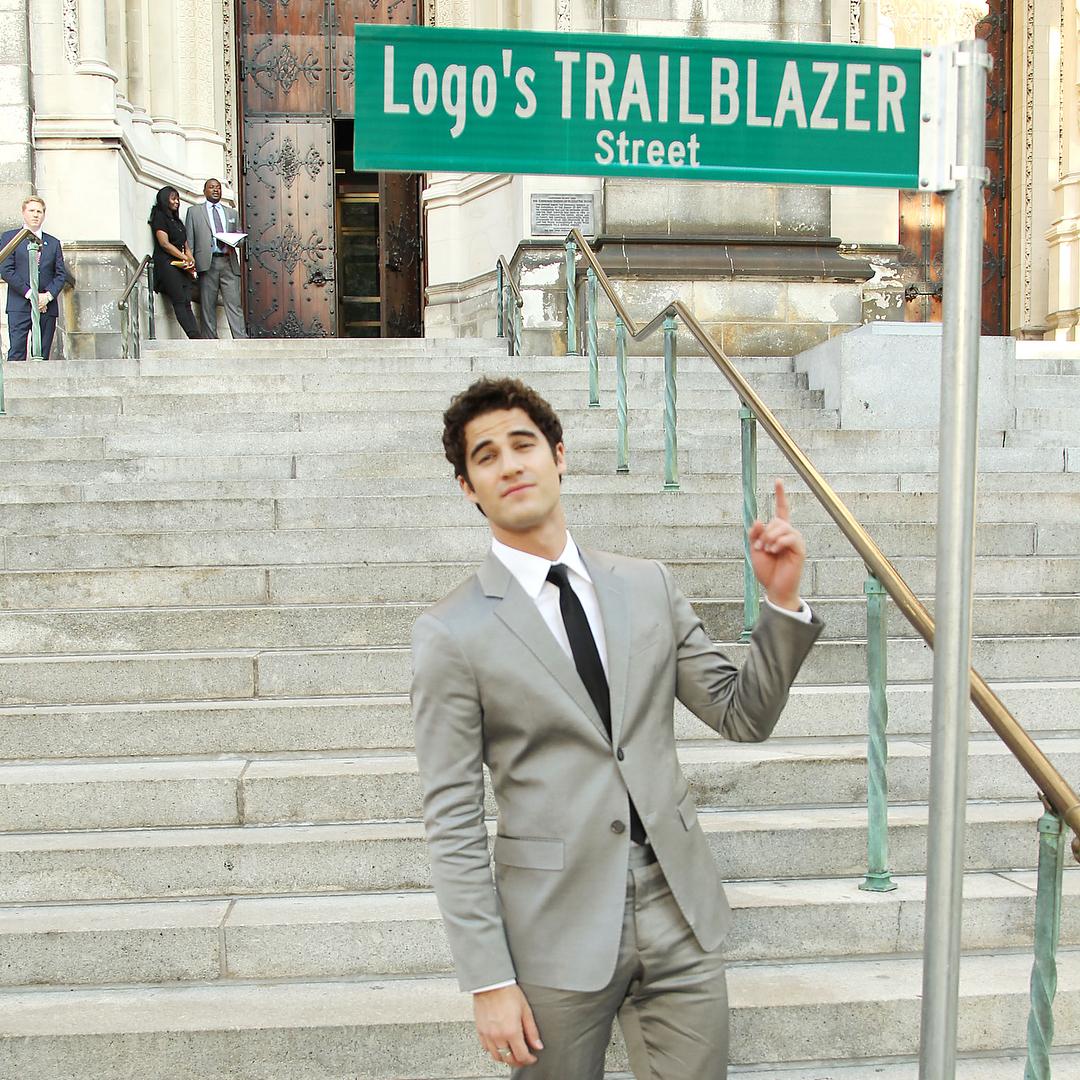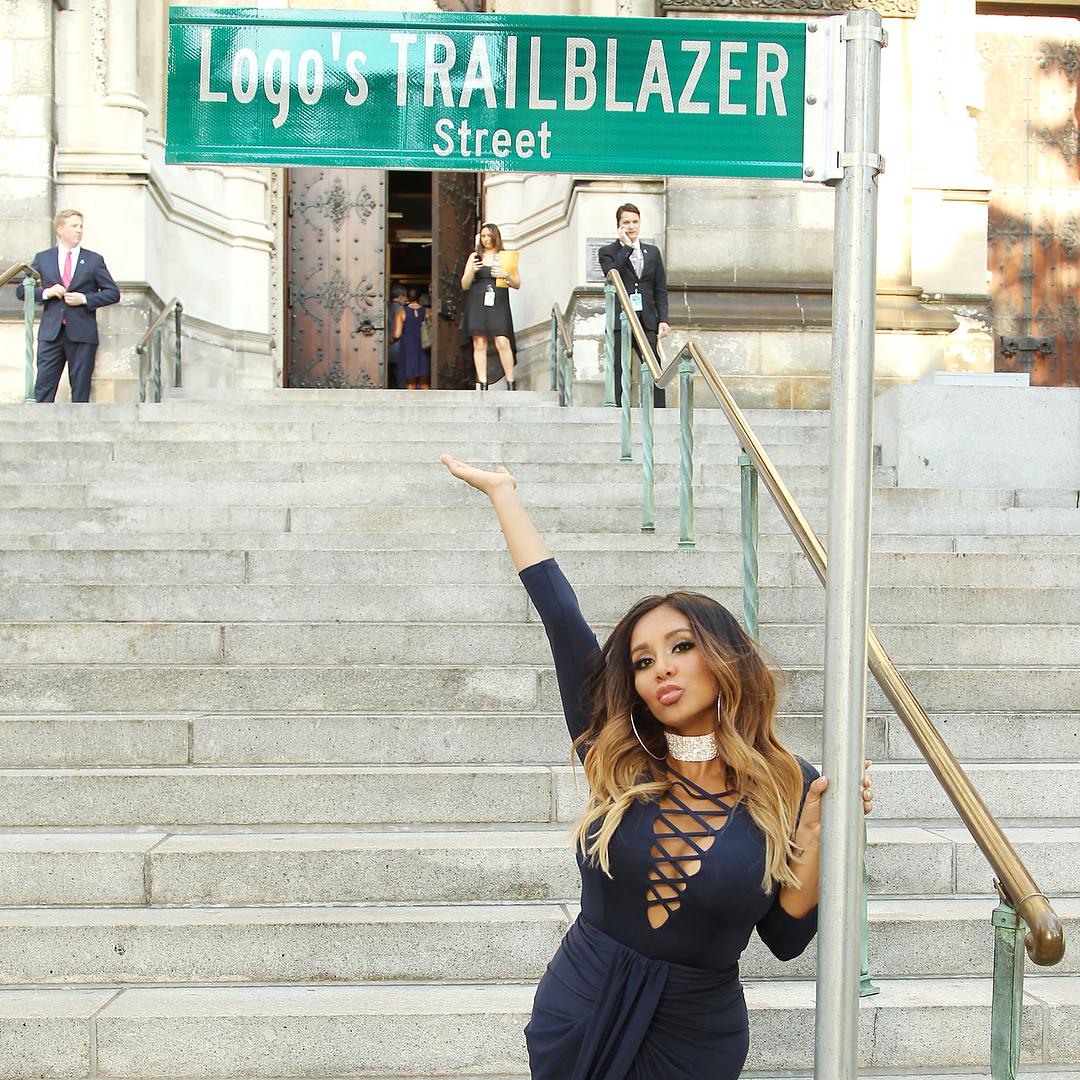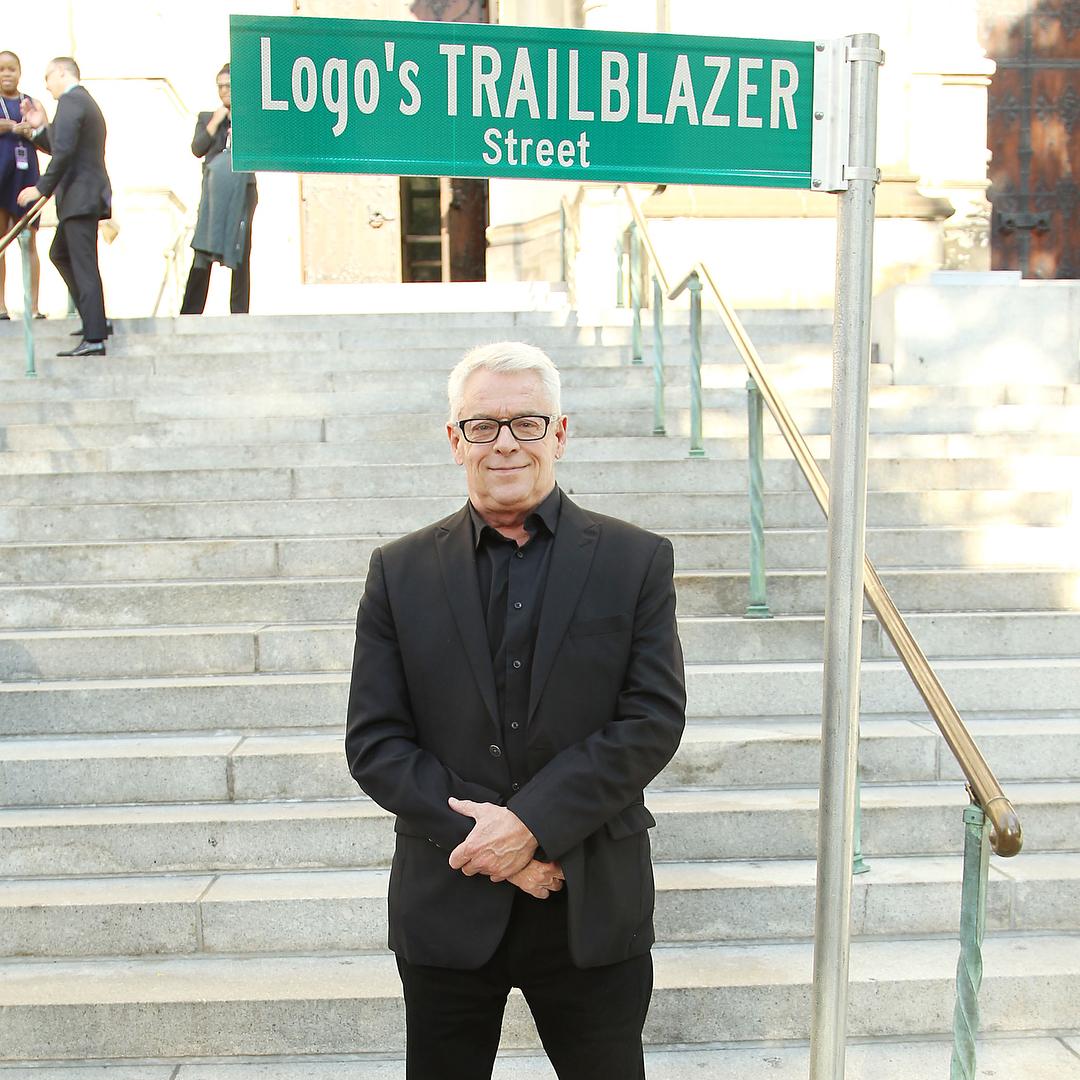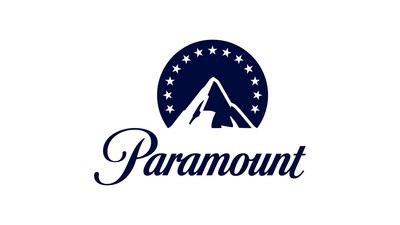Logo’s Trailblazer Honorees “Stood On the Shoulders of Giants” to Become Pioneers of Change for This Generation
by Lisa Di Venuta
Originally published on Blog.Viacom
Throughout history, art has defended the human spirit. Especially in times of political crisis, art and activism become inextricably related.
This was clear after attending Logo’s Trailblazer Honors, which celebrates the work of honorees who have made indelible contributions to LGBT civil rights—through writing, dancing, singing and producing. This year’s honorees included Cyndi Lauper; activist and author Cleve Jones (his memoir, When We Rise, inspired ABC’s miniseries by the same name); the late Alvin Ailey, who is credited with making modern dance an inclusive space for LGBT African-Americans; and the creators of NBC’s Will and Grace, Max Mutchnick and David Kohan.
Logo taped the event on Thursday, June 22 at the historic Cathedral of St. John the Divine in New York City and aired it the following night on VH1 and Logo.
Throughout history, art has defended the human spirit. Especially in times of political crisis, art and activism become inextricably related. This was clear after attending Logo’s Trailblazer Honors, which celebrates the work of honorees who have made indelible contributions to LGBT civil rights—through writing, dancing, singing and producing. This year’s honorees included Cyndi Lauper; activist and author Cleve Jones (his memoir, When We Rise, inspired ABC’s miniseries by the same name); the late Alvin Ailey, who is credited with making modern dance an inclusive space for LGBT African-Americans; and the creators of NBC’s Will and Grace, Max Mutchnick and David Kohan. Logo taped the event on Thursday, June 22 at the historic Cathedral of St. John the Divine in New York City and aired it the following night on VH1 and Logo.
The medieval-style cathedral is itself a trailblazer for religious progression—prior to New York’s Marriage Equality Act in 2011, St. John the Divine invited LGBT couples to come and worship, and held a Pride celebration called the Spirit of Pride.
On the night of the ceremony, pink floodlights cast the same spirit of Pride on the ornate walls. It’s not often you see a church illuminated in pink hues, full of celebrities wearing sparkles and humming with fabulous energy. Passion and pride suffused the space.
I spoke to honorees and up-and-coming talent prior to the ceremony, and was struck with the sense of urgency each person possessed when they discussed LGBT rights—regardless of their already considerable activism and entertainment accomplishments. In Logo’s house of worship, everyone was equal.
Here’s what these activists had to say, both behind the scenes and on air.
A filmmaker’s debut resonates with the LGBT community
Damon Cardasis’ directorial debut, Saturday Church, is a musical and coming-of-age story about transgender youth. Cardisis is new to the industry—he graduated from NYU’s Tisch School of the Arts in 2006, and has just recently delved into the world of producing. He began planning his feature film debut in 2014.
Cardasis told me he was influenced by a program at an episcopal church in Manhattan that provides counselling to LGBT youth. He was moved to see how these kids, many of whom were homeless, were transformed by the opportunity to have a safe space to rest, eat, and express themselves through dance competitions. He decided to tell their story, incorporating musical interludes to convey the magic of empowerment through self-expression.
“Art became even more important in making an impact after this [recent presidential] election,” said Cardasis. “Artists got revved up.” And Saturday Church has met critical acclaim—Variety called it “Moonlight meets La La Land”—and resonated with the LGBT community.
“My movie was shown at the Castro Theatre in San Francisco for Frameline Festival, the longest-running LGBT film festival in the world,” said Cardasis. “The audience gave me a standing ovation.” Afterwards, they told Cardasis how much the movie inspired them.
“Being a trailblazer is following your own course or path,” said Cardasis. “And doing what’s unique to you.”
Alvin Ailey’s light continues to shine
Dancer and choreographer Alvin Ailey passed away in 1989 from AIDS, but he left behind a “pioneering and inclusive legacy.” He was influenced by Lester Horton, a modern dance teacher who ran the first racially integrated dance company in the U.S., to learn choreography and start his own company—the Alvin Ailey American Dance Theater (AAADT) in 1958.
Ailey was vehement about including African-American dancers, many from the LGBT community, in his productions. His company became a fixture in mainstream culture at the height of the Civil Rights Movement, and he was responsible for bringing African-American LGBT dancers on international tours throughout the 1960s.
Robert Battle, artistic director for AAADT, accepted Ailey’s Trailblazer Award. Battle’s moving speech included quotes from Ailey, Maya Angelou, and the gospel song This Little Light of Mine.
“Courage is not the absence of fear,” said Battle, “And grace is not the absence of resistance. Those are choices we make daily. Thankfully he made that choice consistently, so we could all stand up…now I carry the torch.”
Cleve Jones: It’s not over
Honoree Cleve Jones is responsible for the conception of the AIDS Memorial Quilt, a 54-ton tapestry bearing the names of over 94,000 individuals who lost their lives to AIDS. Jones brought the quilt to the National Mall in 1987 during the National March for Lesbian and Gay Rights. The quilt is now the largest public art project in the U.S., and a testament to Jones’ devotion to the LGBT equality movement.
I asked Jones his thoughts on being awarded Logo’s premier honor. “It’s an indication of how far gay people have come,” said Jones, who recalled the shame he felt growing up gay in an era when homosexuality was scorned by large segments of the population. “Tonight we’re here with some of the people who helped our country know about gay people and talk about gay people and respect gay people,” said Jones.
Later that night, Jones told the audience how, for him, being gay was often a daily struggle to survive.
“I thought my life was over before it began,” said Jones. He told the audience he had planned to commit suicide at age 15, because he couldn’t stand living as a gay man in a world that didn’t tolerate him. What stopped him was a copy of LIFE Magazine he found in his high school locker room. Flipping through the magazine, he saw a feature: “Homosexuals In Revolt,” which depicted the gay liberation movement. He felt compelled to join this movement, compelled to stay alive.
Jones hitchhiked to San Francisco and eventually began working with Harvey Milk. He was there the day Milk was assassinated in 1978.
“He was my mentor, he was like a father to me,” said Jones. “All I can think of is, it’s over.” But he rebounded at Milk’s candlelight vigil, thinking, “It’s not over. It’s just beginning.”
Watch Jones’ passionate speech
Jones was diagnosed with HIV in 1993, and survived after fighting to get the FDA to approve lifesaving medication. And though he felt hopeless after Donald Trump won the U.S. presidential election, he quickly rallied.
“I am 62 years old,” said Jones. “I am healthy, happy and ready for the fight.” Today, this means working with the labor movement to fight for safe working conditions and access to affordable healthcare.
“I try to build coalitions between the LGBT community and working class people, especially immigrants,” Jones told me. “I want to unite people across all of boundaries of race, gender, sexuality and faith.”
Cyndi Lauper: from bystander to trailblazer
“I never set out to be a trailblazer,” said Lauper, who was honored for her work on the True Colors Fund, an organization fighting to end homelessness among LGBT youth.
“I was a friend and family member who couldn’t stand on the sidelines anymore and be a bystander. Since I do have a big mouth, I might as well use it for people who aren’t being heard.”
Lauper recalled wanting to help “the most vulnerable people on the street.” She told the audience how Democratic Congressional Party Leader Nancy Pelosi encouraged her to start the organization in 2008, telling her, “We can fix this situation. We can help these kids become productive young Americans.”
As a special tribute to Lauper, musical trio Hayley Kiyoko, Alex Newell, and Wrabel performed a stripped down version of True Colors, complete with violins that reverberated off the cathedral’s 600-foot walls.
Max Mutchnick and David Kohan shatter stereotypes through Will & Grace
Debra Messing presented Max Mutchnick and David Kohan with their Trailblazer Award for their work on Will & Grace.
“More than any other medium,” said Kohan, “Television has the ability to transcend stereotypes.”
Will & Grace did just this—the sitcom presented gay characters as fully realized people, not caricatures.
“Our goal was not to show what made gay characters different,” said Kohan. “But what made them universal.” Above all else, the creators wanted their work to underscore their characters’ humanity. And while proud to accept Logo’s honor, they made a point to acknowledge that they were not the first people to champion realistic gay characters in the entertainment industry.
“We stand on the shoulders of giants,” said Mutchnick.
Logo’s special certainly delivered in spirit, as well as ratings. Trailblazer Honors had 328,000 total viewers after Friday’s simulcast on VH1 and Logo. This is an 80 percent increase in viewership since last year’s special (which was the largest LGBT Pride event ever televised).
As always, Pride Month was an expansive celebration for Viacom. Throughout June, EMERGE (our employee affinity group for LGBT inclusion) held awareness events and parties at our Hollywood, Paramount and New York offices. Viacom employees took part in Pride marches in various cities. And Logo, our network inspired by the LGBT community, unveiled a list of Trailblazing Companies at the beginning of the month, highlighting the most supportive businesses for LGBT employees.
But Viacom doesn’t just celebrate Pride in June. Click here for more on Viacom’s LGBT-inclusive initiatives and other social justice campaigns.
Re-watch the event on LogoTV.com.






